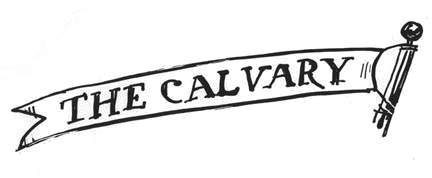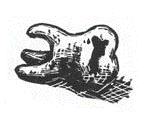|
"Damn ye, poxets. This ain't a dance for poppets and dainties. Remove the harpoon from that man. Now: man the cannon!"
The crew, now in a panic of fear, ran to the guns, pausing only to tip the fresh corpse into the rendering vat.
"Now: Powder, Load, Ram, Aim, Fire!!"
There was an enormous explosion, and for a moment I thought they had blown up their own ship. Then the main deck of the British ship erupted in a sheet of flame.
"Right. Reload. Reload. We've got a Whale to harpoon. First one job, and then the next. Clean up the British. Burn them. Get to the business at hand. NOW: POWDER, LOAD, RAM, AIM AND FIRE!!"
And a second keg of flaming whale oil was pitched at the Calvary. The sun had now descended below the horizon in disgust with us wretched mortals, but we were not worried, for the shrubbery aboard the Calvary made a crackling fire. Great billows of hemp smoke were carried across the waves, and we drank deeply of those happy fumes. For a second, I felt myself back in the Asiatic wastelands, knee-deep in pitch. Then I was struck in the face by a few hundredweight of mixed greenery and pitched back onto the deck. As I extricated myself from the colewort, escarole and Irish moss, Captain Toper cried out:
"Alright, shipmates! Now see, those lime-faced fellows have provided us with a glorious lamplight by which to conduct our business, which, as I have had cause to mention previously, is to hunt for whales. Let's send a second boat down, and let's keep stoking that fire, boys."
I was carried forward in the surge towards the boats, and before I knew it, I was in the briny, my ample girth holding the longboat firmly to the water. Captain Toper stood at the bow as we cut through the squally waves, our faces glowing warmly from the Calvary's burning deck, our lungs filled with the glorious smoke. Suddenly, before us there was a terrific surge in the water, and we froze in amazement as thirteen tons of flabby flesh, with a pair of olives for eyes (how I coveted those eyes!) burst into the air.
"Whale!" cried Toper.
"Hvalt!" nodded Cupidity sagely.
"C'est la baleine!" gasped Pierre, our Canadian cabin boy
"Cetus," I muttered sagely to myself.
"Work those oars, boys!" yelped Toper, drenching us more with his sputum than the South Atlantic's toughest waves had yet succeeded in doing. "Try and cut him off and force him in towards the Calvary. We'll roast that plaguey fish!"
The oarsmen, driven by that supreme force, sc. greed, lashed the sea into a churning foam. Little by little we began to draw even with the massive cetacean. The Captain bade me lie down in the boat's sump, so that he might stand on my buttocks and thus get a better view of his prey.
"Fix harpoon!" I heard him cry.
"Wait for it. . . wait for it . . .NOW!" I lifted up my head and saw the hulking brute whom the crew (with the wit for which the Yankee is so justly famous) called Tiny heave a massive barbed harpoon, like Jupiter himself casting one of his bolts at a Nymph who would not sleep with him. Suddenly the line attached to the spear tautened and the boat gave a tremendous jerk, knocking Captain Toper head over heels into the stern. And we were off! The oarsmen shipped their oars, the Captain scrambled to the bow, making sure to grind my face into the splintery salt-soaked boards on his way, and the boat started moving through the waves at a truly frightening clip.
"Tiny, my boy! You fastened him! There'll be an extra gobbet of pork in your beans tonight, my lad." The Captain quivered with excitement. The whale was dragging by the prevailing wind, and the waves were threatening to smash the boat apart. As we went faster--for the Leviathan's speed kept increasing--we began to go not through the heading waves, but over them, leaving the water at every crest and rejoining it with a mighty crash at every trough.
Soon we were flying past the hulk of the Calvary. I rose up on my knees just in time to see the whale lash the water with his massive flukes with so much force that a black shape that had been bobbing in the waves was sent flying through the air directly towards us. In fact, the beast was so strong that the object covered the fifty-odd yards that separated us in a lazy arc, and would have sunk us had it not been for Tiny, who absorbed most of the impact with his head. The object proved, mirabile dictu, to be a charred cask containing some of the fruits of my labors aboard the Calvary, one hundred gallons of something strong, to wit, my finest south-sea rum. Under the Captain's orders, we cast the headless Tiny over the side and rolled the keg amidships.
Still we raced, parting the water like a minor Moses. The whale drew us in a great circle around the two boats, splashing us with phosphorescence until we glowed in the moonlight.
At last it paused, and the circles our boat described grew smaller and smaller, until we were bobbing along at no more than two or three knots.
"Men, the whale has stopped," cried out Captain Toper. "Let's make straight for him, in with the harpoons, and back to ship, one-two-three."
But scarcely had we gotten our oars into the water when our whale delivered a terrific spout of fishy water unto the air and began to move again in our direction.
"My boys," Captain Toper began, "I know things don't look so good for us, but let me tell you a little story. It's about a man named Whitfield; a good man, for a minister." The whale was drawing nearer, and the oarsmen began backing oars frantically. The Captain went on.
"Now this Whitfield fellow lived in Deerfield, you see, and he had to go to Pittsfield one day, to preach--d'ye follow me? And so he sets out, on foot. Did I mention that it was winter? It was November." The whale leveled its flukes at us, but the Yankee Captain would not be swayed from his anecdote.
|

